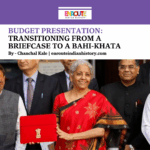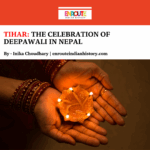Iconic Legal Landscape – Celebrating India’s Prominent Lawyers and Historic Judgements
- EIH User
- July 6, 2023
Most of us have heard of the groundbreaking Kesavananda Bharati case, which forever changed the course of Indian constitutional law. But only a few of us are familiar with the extraordinary lawyers who worked tirelessly behind the scenes, shaping the arguments, and presenting the crucial cases that have left an indelible mark on India’s legal landscape. While we may be familiar with numerous lawyers individually, their connections to significant landmark judgments often need to be seen and noticed. India’s legal system is renowned for its robust framework and commitment to justice. Over the years, it has produced great judgments that have shaped the nation’s socio-political landscape. Moreover, the system has nurtured a generation of exceptional lawyers who have showcased brilliance, strategic insight, and unwavering dedication in their pursuit of justice, leaving an indelible mark on the legal profession.
One notable figure among them is Harish Salve, a former Solicitor General of India, who hails from Nagpur. bsequently, Harish would go on to assist Palkhivala in the renowned Minerva Mills case. Harish considers his legal career to have truly taken off when he provided assistance to his father in the well-known Income Tax Officer v. Dilip Kumar alias Yousuf Khan case. This pivotal moment propelled him into a trajectory of tackling even more momentous cases, including the Bearer Bonds Case, the Bilkis Bano case, and the Krishna-Godavari Basin Dispute Case between the Ambani Brothers.
However, one case that truly highlights his prowess as the Solicitor General is the Tamil Nadu water dispute. The conflict arose when Karnataka declined to open the water channels of the Cauvery River for Tamil Nadu. In response, the Supreme Court held the Karnataka Chief Minister in contempt and sought Harish’s expert opinion on the matter. Displaying his legal acumen, Harish engaged in discussions with the Karnataka CM, urging him to uphold the principles of governance by opening the floodgates until a final decision was reached. Consequently, the gates were unsealed as per the agreement. However, the situation took an unexpected turn the next day when Tamil Nadu, due to excessive rainfall, requested Karnataka to close the gates to manage the overwhelming downstream water flow. While this case exemplified Harish’s legal skills, his most celebrated judgment to date remains the Vodafone International Holdings case B.V. v. Union of India.
Another iconic figure is Abhishek Manu Singhvi who was born in Jodhpur, Rajasthan where he enjoyed a privileged upbringing and was regarded with utmost reverence by his family. Exhibiting exceptional intellect, diligence, and introversion, he pursued an Economics degree from St. Stephens College and went on to study law at Trinity College, UK. Throughout his illustrious legal career, he has held esteemed positions such as Additional Solicitor General of India and Vice President of the Supreme Court Bar Association. Additionally, he was also appointed as Amicus Curiae meaning ‘friend of the court’. Notably, at a mere 34 years of age, he was designated as India’s youngest-ever senior advocate. He has been at the forefront of several other cases like the D.K. Basu decision on custodial deaths in 1997, Naveen Jindal’s right-to-fly-the-triclour case and many more like the Mandal case on reservation for backward classes. He has also served as the official spokesperson of the Congress party, although he temporarily resigned in 2012 amidst controversies. His most famous judgement is Reliance Industries Limited v. Union of India. Recently he emerged as one of the petitioners in the Supreme Court hearing on Same-Sex Marriage where he said that that the demand was not just for “same-sex person marriage” but for the legal recognition of the marriage between “two consenting adults along bodily gender and sex spectrum”.
In the realm of the recent Same-Sex marriage hearing, one name stands out prominently – Menaka Guruswamy, a distinguished senior advocate at the Supreme Court of India. Guruswamy ardently advocates for the LGBTQ community, asserting their fundamental right to lead a life of dignity and have equal access to the institution of marriage and family, like others. Guruswamy, along with lawyers Arundhati Katju and Saurabh Kripal, made history in April 2016 by filing a groundbreaking petition on behalf of five LGBT individuals, led by Navtej Singh Johar. This historic petition challenged the constitutionality of Section 377 of the Indian Penal Code, 1860, marking a milestone as it was the first time that LGBT individuals in India filed writ petitions, asserting the violation of their fundamental rights.
Named among Time Magazine’s 2019 list of 100 influential individuals, alongside her partner Arundhati Katju, Menaka Guruswamy is a remarkable figure in the legal arena. Hailing from Hyderabad, she boasts advanced law degrees from prestigious institutions such as Harvard Law, Oxford, and the National Law School of India University. Guruswamy’s extensive writings have been published in renowned print and online publications, including the New York Times and the Indian Express. Widely recognized for her involvement in groundbreaking cases presented before the Supreme Court, she has left an enduring impact. Notable among these cases is the Section 377 case, the bureaucratic reforms case, the Augusta Westland bribery case, the Salwa Judum case, and the Right to Education case. Additionally, she contributed invaluable assistance to the Supreme Court as Amicus Curiae in the matter concerning the alleged extrajudicial killings of 1,528 individuals in Manipur. Reflecting on her career path, Guruswamy shared, “I had two options: I could have become a professional chess player, or I could have made this commitment and become a lawyer. As my first job, I worked for the Attorney General of India, surrounded by colleagues four times my age.” Presently residing in Delhi, she finds solace in strolling through the city, basking in the nostalgia evoked by the captivating monuments.
In conclusion, the legal landscape of India has witnessed the brilliance and dedication of numerous prominent lawyers who have left an indelible mark on the country’s history. From groundbreaking cases that reshaped societal norms to landmark judgments that safeguarded the rights and dignity of individuals, these lawyers have displayed exceptional legal acumen and unwavering commitment to justice. Their names are etched in the annals of Indian jurisprudence, serving as beacons of hope and inspiration for future generations. As we reflect on the historic judgments and the tireless efforts of these legal luminaries, we are reminded of the enduring strength and efficacy of the Indian legal system. It is through their remarkable advocacy that the foundation of justice is strengthened, paving the way for a more equitable and progressive society. The legacy of these prominent lawyers and their historic judgments continues to shape the course of Indian law, leaving an indomitable legacy that will be cherished for generations to come.
References
Book “Legal Eagles” by Indu Bhan
Numerous Newspaper Articles
https://www.brut.media/in/news/menaka-guruswamy-s-case-for-same-sex-marriage-92ed36a7-8bf4-4041-b834-7e8c5f957c2f
https://rhodesproject.com/menaka-guruswamy-profile
https://www.thequint.com/news/law/same-sex-marriage-case-supreme-court-hearing-dy-chandrachud-latest-update#read-more.



















